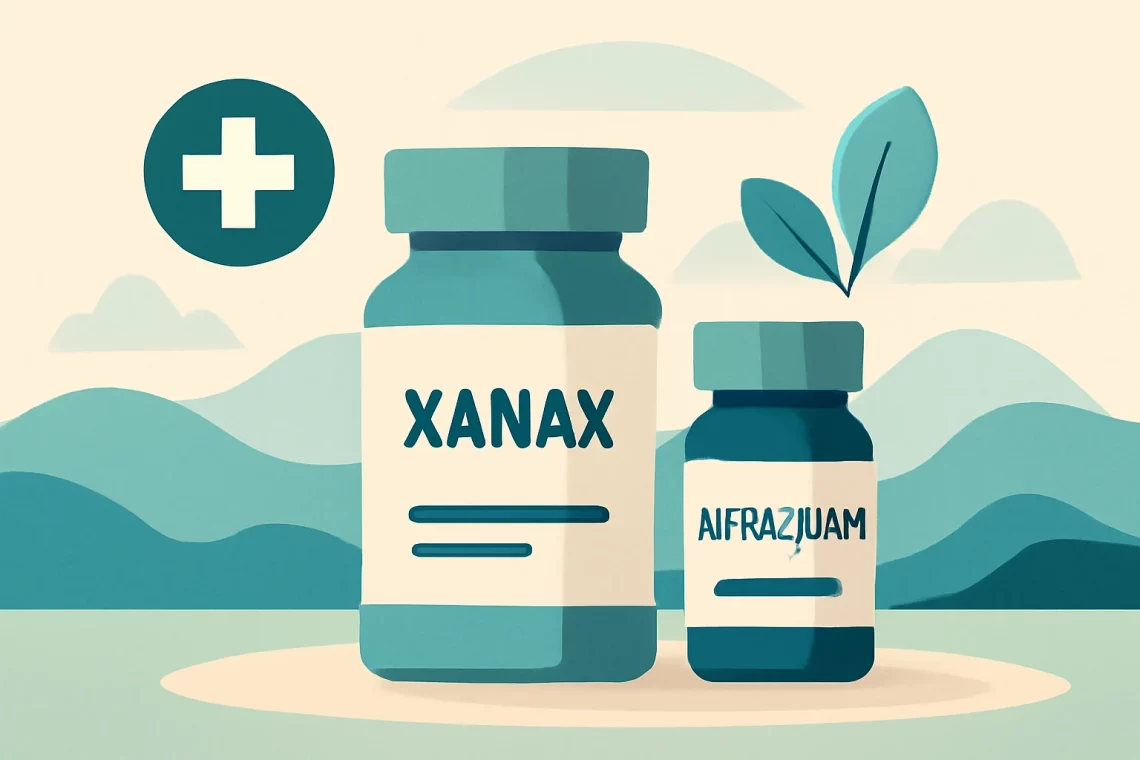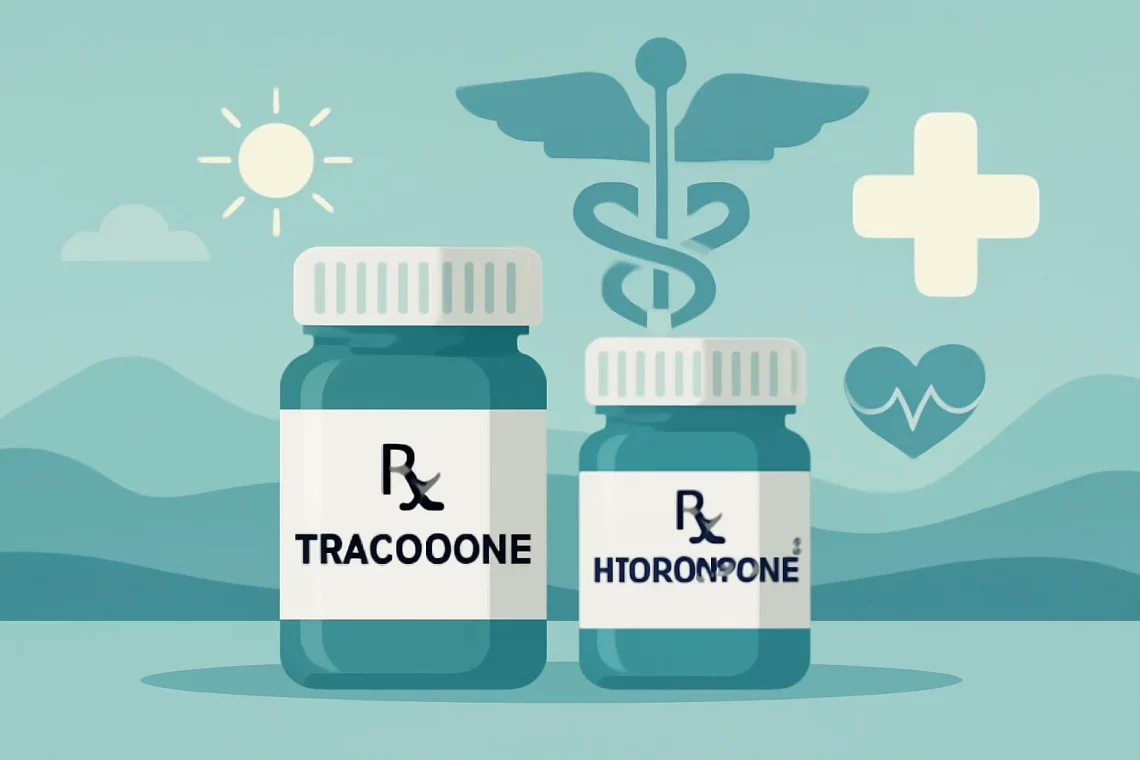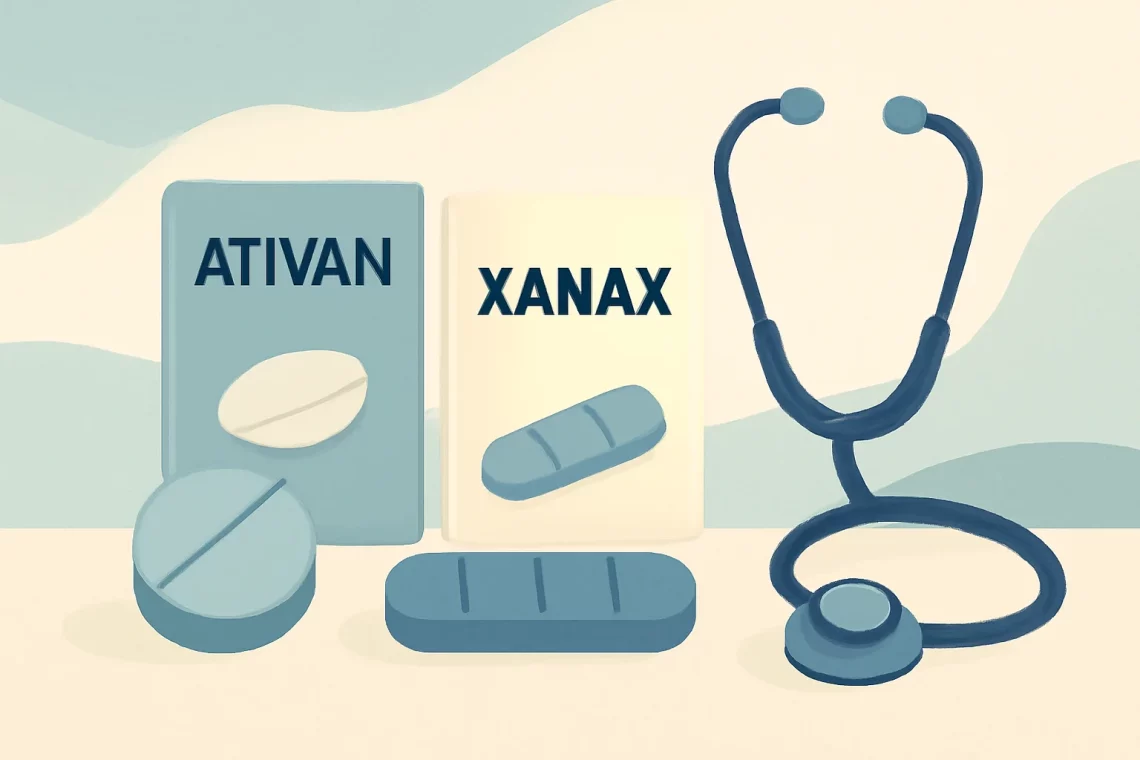-
Xanax vs Alprazolam Understanding the Differences and Similarities
Xanax and alprazolam are terms that are often used interchangeably, leading to confusion among patients and healthcare professionals alike. While Xanax is the brand name, alprazolam is the generic name of the same medication. Both are commonly prescribed for anxiety and panic disorders, but understanding their differences, uses, and potential impacts on health is crucial for anyone considering their use. As the prevalence of anxiety-related conditions continues to rise, discussions surrounding these medications become increasingly relevant. It is essential for individuals to educate themselves about the options available to them, the mechanisms of these drugs, and the implications of their use in daily life. This article aims to clarify these…
-
Trazodone vs Hydroxyzine: Which is Better for Your Needs?
The distinction between various medications can often be a complex and daunting task, especially when it comes to understanding their specific uses, effects, and potential side effects. As our understanding of mental health and wellness evolves, so too does the array of pharmacological options available to those seeking relief from conditions such as anxiety, depression, and insomnia. Two medications that frequently come up in discussions around treatment options are Trazodone and Hydroxyzine. These drugs, while both used to treat anxiety and sleep disorders, belong to different classes and have unique mechanisms of action. Trazodone is primarily known as an antidepressant, but it is also often prescribed off-label for insomnia due…
-
Clonazepam vs Ativan: Understanding Their Differences and Uses
Clonazepam and Ativan are two medications that fall under the category of benzodiazepines, which are widely prescribed for their sedative, anti-anxiety, and muscle-relaxing properties. These medications have gained prominence for their effectiveness in treating various mental health conditions, including anxiety disorders, panic attacks, and seizures. The rise in the prescription of benzodiazepines has led to a growing interest in understanding the differences and similarities between Clonazepam and Ativan, especially among those seeking relief from anxiety and related disorders. As the demand for effective treatment options increases, patients and healthcare providers alike are keen to compare these two medications. While both Clonazepam and Ativan can provide significant benefits, they also come…
-
Clonazepam vs Diazepam: Key Differences and Uses Explained
Clonazepam and diazepam are two medications belonging to the benzodiazepine class, widely used for their anxiolytic, anticonvulsant, and muscle relaxant properties. Both drugs have been prescribed for various conditions, including anxiety disorders, panic attacks, and seizures. Their effectiveness and the specific situations they are prescribed for can vary widely, making it crucial to understand their unique characteristics, benefits, and potential side effects. As mental health awareness grows, understanding the differences between these medications becomes increasingly important for patients and healthcare providers alike. While both clonazepam and diazepam serve similar purposes, they also have distinct pharmacological profiles, which can influence treatment decisions. The choice between clonazepam and diazepam often depends on…
-
Diazepam vs Clonazepam: Which Medication Is Right for You?
In the realm of mental health and pharmacology, few medications have garnered as much attention as benzodiazepines, particularly Diazepam and Clonazepam. These drugs are widely used for their anxiolytic, anticonvulsant, and muscle relaxant properties. Both have carved out significant roles in treating various disorders, including anxiety, panic attacks, and certain types of seizures. However, their differences in mechanism, efficacy, and side effects can often lead to confusion for patients and healthcare providers alike. Understanding these differences is crucial for making informed decisions about treatment options. As the conversation around mental health continues to evolve, the importance of choosing the right medication has become more pronounced. Patients often find themselves navigating…
-
Ativan vs Seroquel: Comparing Uses, Benefits, and Side Effects
Ativan and Seroquel are two medications frequently prescribed for mental health conditions, each with distinct mechanisms of action and indications. Understanding the nuances of these drugs can be crucial for patients and healthcare providers alike. While both medications are utilized in the treatment of anxiety and mood disorders, they belong to different classes and have varying side effects, benefits, and risks. Ativan, generically known as lorazepam, is a benzodiazepine that primarily acts as an anxiolytic, providing rapid relief from anxiety symptoms. Seroquel, or quetiapine, is an atypical antipsychotic primarily used to manage conditions like schizophrenia and bipolar disorder. The differences in their pharmacological profiles can greatly influence treatment outcomes and…
-
Ativan vs Xanax: Understanding the Differences and Uses
Ativan and Xanax are two commonly prescribed medications that belong to a class of drugs known as benzodiazepines. These medications are primarily used for the treatment of anxiety disorders, panic attacks, and other related conditions. While both Ativan and Xanax share similar therapeutic effects, there are notable differences between the two that can influence a healthcare provider’s choice in prescribing one over the other. Understanding these differences, including their pharmacological properties, potential side effects, and the contexts in which they are most effective, is crucial for patients seeking relief from anxiety and related symptoms. As anxiety disorders become increasingly prevalent, the conversations surrounding the use of such medications have garnered…
-
Xanax vs Librium: Understanding the Differences and Uses
Xanax and Librium are two medications that fall under the category of anxiolytics, commonly prescribed to manage anxiety and related disorders. While both drugs serve a similar purpose, they possess distinct characteristics, mechanisms of action, and potential side effects. Understanding these differences can be crucial for patients and healthcare providers alike. The increasing prevalence of anxiety disorders in today’s fast-paced world has heightened the demand for effective treatment options. As such, a thorough examination of anxiety medications like Xanax and Librium is essential for informed decision-making. When discussing anxiolytics, it’s important to recognize that they interact with the brain’s neurotransmitters, particularly gamma-aminobutyric acid (GABA). This interaction can lead to a…
-
Ativan vs Valium: Understanding Their Differences and Uses
Ativan and Valium are two widely recognized medications that belong to the benzodiazepine class of drugs. Both are primarily used to treat anxiety and other related conditions, but they have different properties, indications, and effects on the body. As the prevalence of anxiety disorders continues to rise, understanding the distinctions between these two medications becomes increasingly important. Benzodiazepines work by enhancing the effects of a natural chemical in the body called gamma-aminobutyric acid (GABA). This action leads to a calming effect on the central nervous system, which can be beneficial for those experiencing anxiety, panic attacks, or sleep disorders. However, while both Ativan (lorazepam) and Valium (diazepam) serve similar purposes,…
-
Clonazepam vs Valium: Comparing Uses, Effects, and Risks
Clonazepam and Valium are both medications commonly prescribed to manage anxiety and seizure disorders, among other conditions. They belong to a class of drugs known as benzodiazepines, which work by enhancing the effect of a natural chemical in the body called gamma-aminobutyric acid (GABA). This enhancement results in a calming effect on the brain and nerves, making benzodiazepines effective for various medical conditions. Despite their similar functions, Clonazepam and Valium differ in several key aspects, including their chemical composition, dosage forms, duration of action, and potential side effects. These differences can have significant implications for patients and healthcare providers when determining the most appropriate treatment options. It’s crucial for individuals…






































